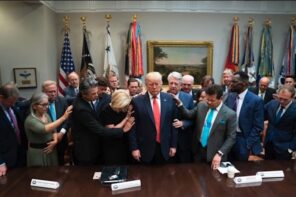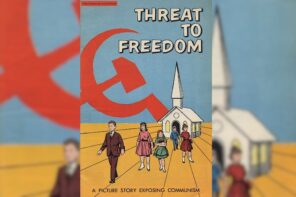Not even three months after John Chau’s deadly venture in the Indian ocean, another American missionary has generated controversy over trespassing on protected indigenous land. Steve Campbell, a missionary supported by the Greene Baptist Church in Maine, is under investigation by Brazil’s National Indigenous Foundation (FUNAI) following his venture into a reservation inhabited by the isolated Hi-Merima tribe in the southern Amazonas. FUNAI, the government agency on indigenous affairs, stated that the missionary could be charged with genocide for exposing the tribe to potentially deadly microbes.
A second-generation missionary, Steve Campbell has lived with the neighboring Jamamadi people since 1963. He said he was teaching the tribe how to use GPS navigation when he crossed into Hi-Merima territory. If Campbell is found to have utilized his relationship with the Jamamadi to make contact with the nationally protected indigenous group, he could “be accused of a crime of genocide by deliberately exposing the safety and life of the Himarimã,” said Bruno Pereira, FUNAI coordinator for uncontacted tribes.
While FUNAI intends to notify federal prosecutors about the incident, it’s unclear how the case would proceed. According to the Brazilian penal code, criminal charges for genocide can be brought against nationals but foreigners cannot be prosecuted under national law. One possible explanation for FUNAI’s approach is to generate awareness of the detrimental outlook for the agency and the indigenous communities they protect.
The incident comes on the heels of growing threats to indigenous sovereignty by a new right-wing administration in Brazil. President Jair Bolsonaro assumed office in January after running a campaign largely hostile to indigenous rights. Bolsonaro supports assimilation of indigenous communities and opening their resource-rich reservations in the Amazon to commercial interests, including large-scale farming, logging, and mining. Although the Brazilian constitution protects these populations and their lands, the new president has considered these regulations an impediment to economic development and publicly said he won’t get “into this nonsense of defending land for Indians.”
The policy of opening the Amazon for cultivation of its natural resources has had devastating effects on the indigenous population. According to anthropologist Alexander Hinton, Brazil’s indigenous groups decreased by up to 80% from 1900 to 1957 due to “disease.” In fact, advocacy organizations such as Survival International and the International Work Group for Indigenous Affairs formed during the 1960s in response to this drastic depopulation and widespread violence against native groups in the Amazon. These organizations, along with FUNAI (founded in 1967), continue to advocate against over-extraction of natural resources and contact with indigenous peoples that contributes to their erasure.
FUNAI has suffered from budget cuts in recent years that will seemingly continue under the Bolsonaro administration, as its advocacy for indigenous autonomy and sovereignty has put the agency at odds with the new president’s platform. According to Dinama Tuxa, coordinator of Brazil’s Association of Indigenous Peoples, Bolsonero espouses policies that constitute an “institutionalization of genocide in Brazil.”
Some have also expressed concern that Bolsonaro’s religious base might encourage missionaries to advance integration of native tribes in the Amazon basin. Although the President is Catholic, an overwhelming 70% of evangelicals voted for him in the October 2018 elections. Damares Alves, an evangelical pastor, was recently appointed as the director of the Ministry of Human Rights, Family, and Women. Bolsonaro transferred management of indigenous relations from FUNAI to Alves’ oversight, leading some to worry that evangelical missionaries could end a decades-long policy of non-contact with isolated tribes.
Although Campbell’s missionary misadventure pales in comparison to the broader national changes threatening indigenous communities, several tribes have been outspoken about how infringement on their constitutional rights represents a challenge to their survival. In a letter to the president, representatives from the Aruak, Baniwa, and Apurinã tribes pleaded: “We don’t want to be wiped out by this government’s actions. Our lands play a vital role in maintaining biodiversity. We are people, human beings…we’re born, we grow… and then we die on our sacred land, like any person on Earth.”
Complicating this dynamic is American missionaries’ own fraught history with indigenous groups, corporate interests, foreign governments, and local officials in the Amazon. Researchers Gerald Colby and Carlotte Dennett demonstrate how the Summer Institute of Linguistics (SIL), and its sister organization the Wycliffe Bible Translators (WBT), spread throughout the Amazon basin during the mid twentieth century to reach remote tribes for Christ and to translate the Bible into their indigenous languages. The SIL/WBT was a widespread operation employing hundreds of evangelists and linguists, including Steve Campbell’s own parents, Barbara and Robert Campbell, as missionaries with Wycliffe Bible Translators.
Under the directorship of William Cameron Townsend, the SIL/WBT signed contracts with U.S. government agencies and received funding by private enterprises with an interest in developing the region. As U.S. agencies and companies spread into Latin America, missionaries came under growing criticism for being complicit in the decimation of indigenous communities by either claiming ignorance or denying outright that genocide was taking place. Into the 1970s, a coalition of activists from Bolivia to Brazil challenged SIL’s methodologies, alliances, and affiliates. Eventually, Panama, Brazil, Ecuador, and Mexico terminated their contracts with SIL.
Steve Campbell’s trespassing on native lands might not have been done with malicious intent, but it still contributes to the precarious outlook for Brazil’s native communities. Given the recent history of foreign and local infiltration into indigenous lands and violence against their people, American missionaries can at the very least trump historical precedence and support indigenous rights instead of impeding them.




